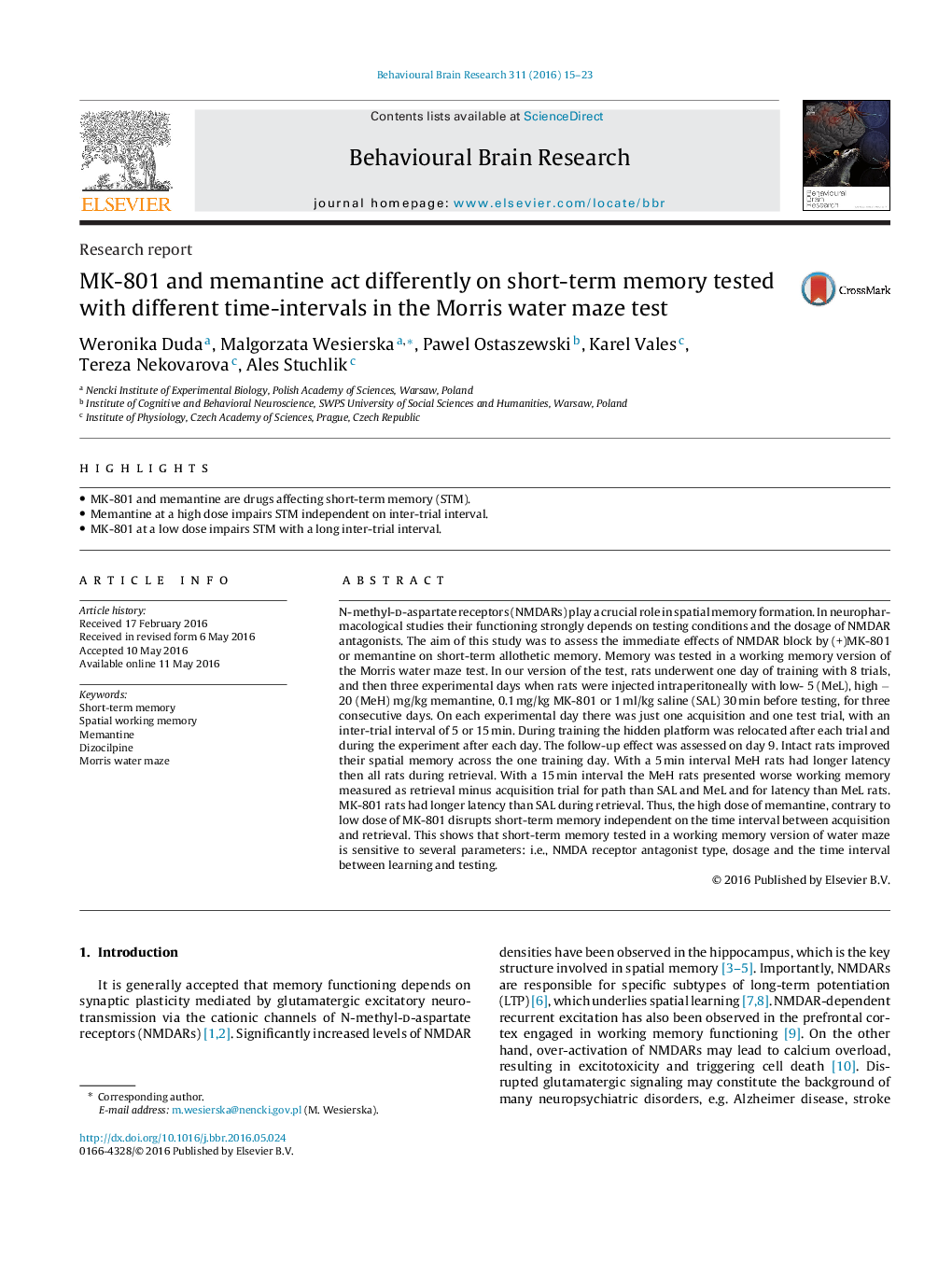| کد مقاله | کد نشریه | سال انتشار | مقاله انگلیسی | نسخه تمام متن |
|---|---|---|---|---|
| 6255899 | 1612922 | 2016 | 9 صفحه PDF | دانلود رایگان |

- MK-801 and memantine are drugs affecting short-term memory (STM).
- Memantine at a high dose impairs STM independent on inter-trial interval.
- MK-801 at a low dose impairs STM with a long inter-trial interval.
N-methyl-d-aspartate receptors (NMDARs) play a crucial role in spatial memory formation. In neuropharmacological studies their functioning strongly depends on testing conditions and the dosage of NMDAR antagonists. The aim of this study was to assess the immediate effects of NMDAR block by (+)MK-801 or memantine on short-term allothetic memory. Memory was tested in a working memory version of the Morris water maze test. In our version of the test, rats underwent one day of training with 8 trials, and then three experimental days when rats were injected intraperitoneally with low- 5 (MeL), high â 20 (MeH) mg/kg memantine, 0.1Â mg/kg MK-801 or 1Â ml/kg saline (SAL) 30Â min before testing, for three consecutive days. On each experimental day there was just one acquisition and one test trial, with an inter-trial interval of 5 or 15Â min. During training the hidden platform was relocated after each trial and during the experiment after each day. The follow-up effect was assessed on day 9. Intact rats improved their spatial memory across the one training day. With a 5Â min interval MeH rats had longer latency then all rats during retrieval. With a 15Â min interval the MeH rats presented worse working memory measured as retrieval minus acquisition trial for path than SAL and MeL and for latency than MeL rats. MK-801 rats had longer latency than SAL during retrieval. Thus, the high dose of memantine, contrary to low dose of MK-801 disrupts short-term memory independent on the time interval between acquisition and retrieval. This shows that short-term memory tested in a working memory version of water maze is sensitive to several parameters: i.e., NMDA receptor antagonist type, dosage and the time interval between learning and testing.
Journal: Behavioural Brain Research - Volume 311, 15 September 2016, Pages 15-23